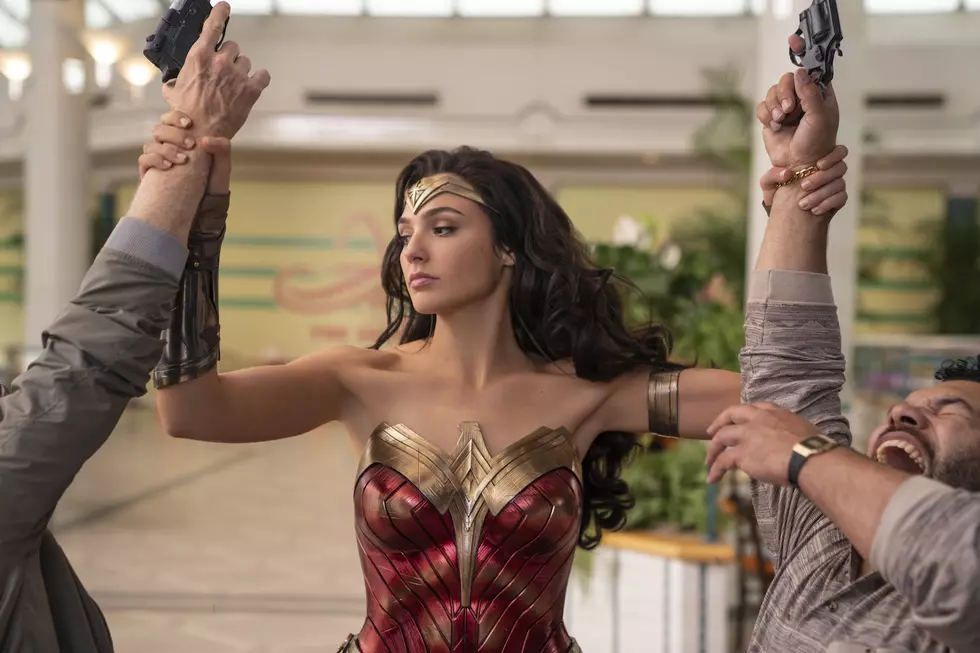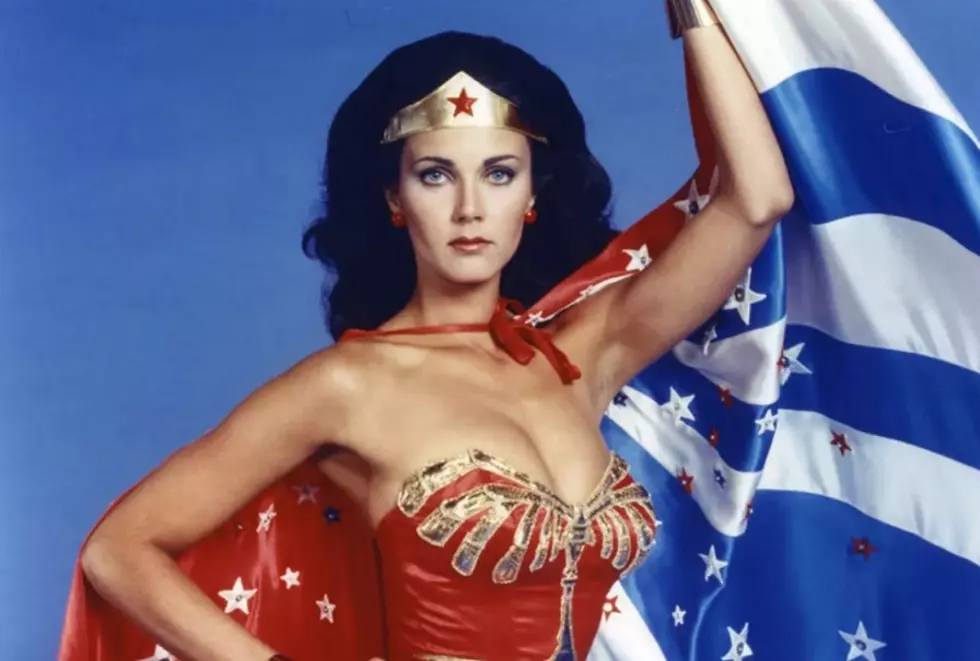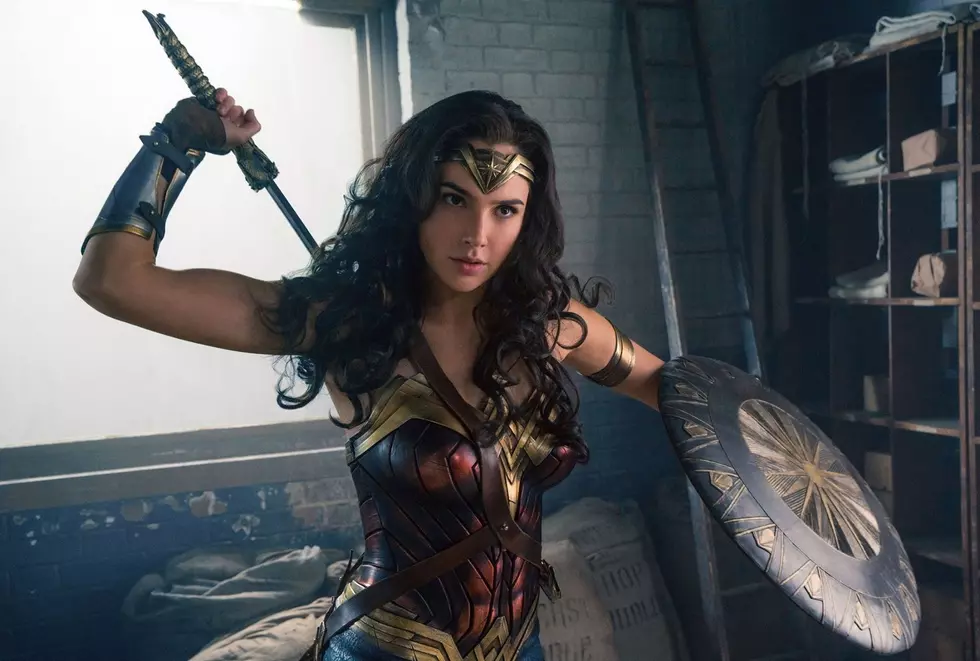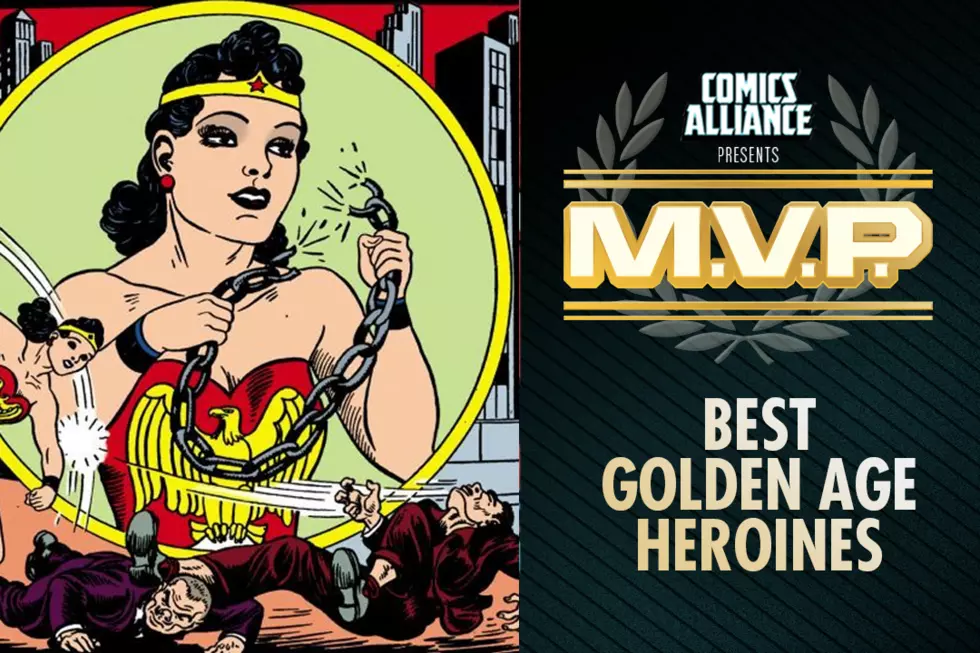
Jill Thompson’s ‘The True Amazon’ And The Secret Strength Of Wonder Woman’s Confusing Origins
Gender is far from the only thing that separates Wonder Woman from her DC Comics peers Superman and Batman. One rather dramatic difference that has grown more and more pronounced over the course of the last three decades is the fluidity of the character’s origins.
This is most often expressed as a negative, a frustration articulated by referring to the character as "confusing," or citing the fact that she doesn’t have her own classic, standalone comic that you can point a curious fan to the way, say, Batman: Year One will satisfy anyone curious about Batman and how he came to be.
Jill Thompson’s Wonder Woman: The True Amazon responds to that aspect of the character, but not simply by filling a perceived hole with an analogue to Year One. Rather, The True Amazon capitalizes on that fluidity to tell a Wonder Woman story unlike any other.
Note: This article contains spoilers for the events and ending of The True Amazon.
Certainly the World’s Finest have had their backstories tweaked in the comics every now and then, and they vary slightly from mass media adaptation to mass media adaptation, but every version agrees on the important stuff. Superman was rocketed to Earth from a doomed planet as a baby, and was adopted and raised on Earth, where his extraordinary powers kicked in. Batman’s wealthy parents were killed before his eyes when he was a boy, and he devoted his life and fortune to fighting crime in the guise of a bat.
And Wonder Woman?
Well, she’s from a secret island of Amazon women, and came to “Man’s World,” where she became a superhero. That never really changes. Everything else, however, seems negotiable.
Was she born on that island? Sometimes she was the daughter of Zeus and Hippolyta, Queen of the Amazons. More often she was a clay or sand sculpture, brought to life to please Hippolyta by the Amazons’ patron deities.
Why did she leave? Often in order to save the life of the first man she ever met, a man she fell in love with. And to defend America and its democratic allies from the Axis Powers. Or to defend America and the world from the influence of war god Ares and his worshippers. Or merely because of her insatiable curiosity about the world beyond her island’s shores. Or some combination of the above; usually at least two.
She was armed with a magical vehicle and accessories, the origins of which vary from telling to telling. More impressive yet were her amazing powers, which also vary from telling to telling, as do the precise source of those powers.
Even when she arrived varies, as her creator William Moulton Marston tied her origin to current events in 1942, so that her origin necessitates a great deal more tinkering than those of many heroes not tied directly to a fixed point in time. Sometimes she pre-dated her superheroic peers, sometimes she was their contemporary, sometimes she began her career long after they began theirs.
As stories piled up --- and as one of only a handful of characters whose comics have been in continuous publication since a Golden Age debut, she has a lot of stories --- writers and editors went to sometimes comical lengths to update her, and then explain everything that changed when they did so. (Her mother, and especially her sometimes partner Wonder Girl, suffered far more from such adjustments than she did.)
I find it ironic that so many of the best Wonder Woman stories of some length or prestige that DC has published in the last decade or so have been origin stories, and all been quite different: Ben Caldwell’s Wonder Woman strip in Wednesday Comics, Grant Morrison and Yanick Paquette’s Wonder Woman: Earth One, Renae De Liz’s The Legend of Wonder Woman, Greg Rucka and Nicola Scott’s ongoing Wonder Woman arc “Year One” and now, of course, Thompson’s Wonder Woman: The True Amazon.
Each of these stories differs dramatically in ways big and small, and, with the exception of “Year One,” all are set outside of the DC Universe’s official continuity, and thus don’t feature what regular readers would think of as the “real” Wonder Woman. Nor do they lead directly into other comics the way that Batman: Year One or Superman: Secret Origin might; Caldwell’s Wonder Woman and Morrison and Paquette’s Wonder Woman exist only in the pages they’ve worked on, and you won’t find her in other collections or in any issue of Wonder Woman’s ongoing series.
Having just read Thompson’s The True Amazon, though, I find myself reevaluating what often seemed like a weakness in DC’s strategy of making every Wonder Woman prestige project a standalone origin story. Narrative fluidity is another way to say flexibility, and had Thompson not been permitted to stray so far from some established, canonical origin story --- be it Marston’s original, or George Perez’s post-Crisis one, or Thompson’s husband Brian Azzarello’s post-Flashpoint origin, she wouldn’t have been able to tell this story, and that would have been too bad.
Because Wonder Woman: The True Amazon is an amazing story, unlike any other Wonder Woman story, and unlike almost any other superhero story, period.
Thompson begins her story in antiquity, writing in simple, declarative language that has the cadence of a fairy tale of Amazon history. The warrior women of Amazonium warred against nine armies all across the known world, battling forces lead by the hero Herakles, who was eventually joined by his disguised father Zeus, who sought to have his way with Queen Hippolyta.
Hearing of her husband’s plan, Hera enlisted the aid of Poseidon, and they rescued the Amazons, who had been driven to the edge of the sea, delivering them to safety on their own hidden island.
Their melancholy queen would fashion a baby out of wet sand on the beach at night, and sing it a sad, beautiful song that reached Olympus, causing the gods and goddesses there to cry tears of silver and gold that rained down upon Themyscira, and brought the girl to life.
So far, so good --- and more complex and more mythic than most other versions.
And then things get really interesting, as the baby Diana is the Amazon society’s only child --- in addition to being its princess --- and possesses extraordinary powers gifted to her by the gods themselves. Really, is there a better recipe for a girl growing up being spoiled?
And so Princess Diana grows from a callous little brat into an arrogant, reckless young woman, the sole queen bee and mean girl in a world that can’t help but fawn over her.
The conflict at the heart of Thompson’s story arises when Diana meets simple stable girl Alethea, whose affection can’t be bought, bullied or bragged out of her, and Diana begins to try to be a good person to win over the single woman who doesn’t love her in the manner to which she feels entitled.
Things come to a head when the Amazons engage in games wearing disguises, something that usually occurs when Hippolyta is trying to determine which Amazon is best-suited for the mission of bringing Steve Trevor, who plays no part in this story at all, back to Man’s World.
Diana wins each event, but is surprised at how difficult it is to do so, as she is arrogant enough to think no Amazon should be able to match her in any way. Her desperation to win the final event leads her to a course of action that cripples and even kills some of her sisters.
Contrary to what one might think, and what one will of course be lead to believe, Wonder Woman is not the true Amazon of the title; Althea is. And, in punishment for her actions, Diana leaves the island not to rescue Steve Trevor, not to save the outside world from any threat, not to serve as an ambassador from a more enlightened society, and not even due to the restlessness and curiosity of a young woman. Rather, she was banished, forced to leave her home forever --- or until she has found a way to redeem herself, and atone for all the damage she caused.
In the last sequence, she puts on a version of her iconic costume, here explained as a form of punishment --- her tiara, the prize she cheated to win, is literally referred to as a "crown of thorns" --- and rows away.
And, Thompson writes, “Even now she wanders the world, defending the weak, righting wrongs and fighting evil.”
This is Wonder Woman’s origin as a tragedy, fitting given how inspired she was by Greek mythology --- and Thompson’s Amazon society is very Greek in mythology, eschewing the garbled mythology and mélange of sci-fi and fantasy that Marston presented. Still being a superhero story, however, it does end hopefully, as our world gets one of its greater heroes in the process, and a door is left open for Wonder Woman to redeem herself, rather than blinding herself with a sharp object and throwing herself to her death, as she might have done in a traditional Greek tragedy.
A superhero with massive character faults who experiences a life-changing tragedy and becomes a true hero isn’t unique, but it’s certainly unique in Wonder Woman origins, and to the sunnier heroes of DC Comics in general. This sort of psychological drama calls to mind weapons-dealer Tony Stark becoming Iron Man, selfish Peter Parker becoming Spider-Man, arrogant surgeon Stephen Strange becoming the Sorcerer Supreme, or spoiled, arrogant Thor being cast down to Earth until he proves himself worthy.
And in those stories, more familiar in pop culture than any origin of Wonder Woman’s, thanks to Marvel’s movie success of the 21st century (Strange’s origin is still in the works, but will beat Wonder Woman’s to the silver screen), the examination of their protagonists’ many flaws and the personal crises that motivates them to do good is simply the first act of their stories.
In The True Amazon, there is no further story following Wonder Woman’s banishment. Of course, as we all know, Wonder Woman turns out to be a great superhero --- that is one aspect of her ever-changing origin that never changes --- but it’s not part of this story. Thompson doesn’t show us Wonder Woman’s inevitable redemption. After all, we’ve seen Wonder Woman the noble, selfless superhero; we’ve not seen Diana the ignoble, selfish child.
It’s as subversive and provocative as any story featuring a foundational, iconic superhero as I’ve ever encountered. It has many more virtues than can be enumerated upon here, but what may very well be its most noteworthy accomplishment is the way in which it takes one of the Wonder Woman character’s perceived deficiencies and turns it into a great strength. Which, come to think of it, is a very Wonder Woman way to tell a story.
This is Wonder Woman as you’ve never seen her, and a superhero comic like none you’ve ever read.
More From ComicsAlliance









